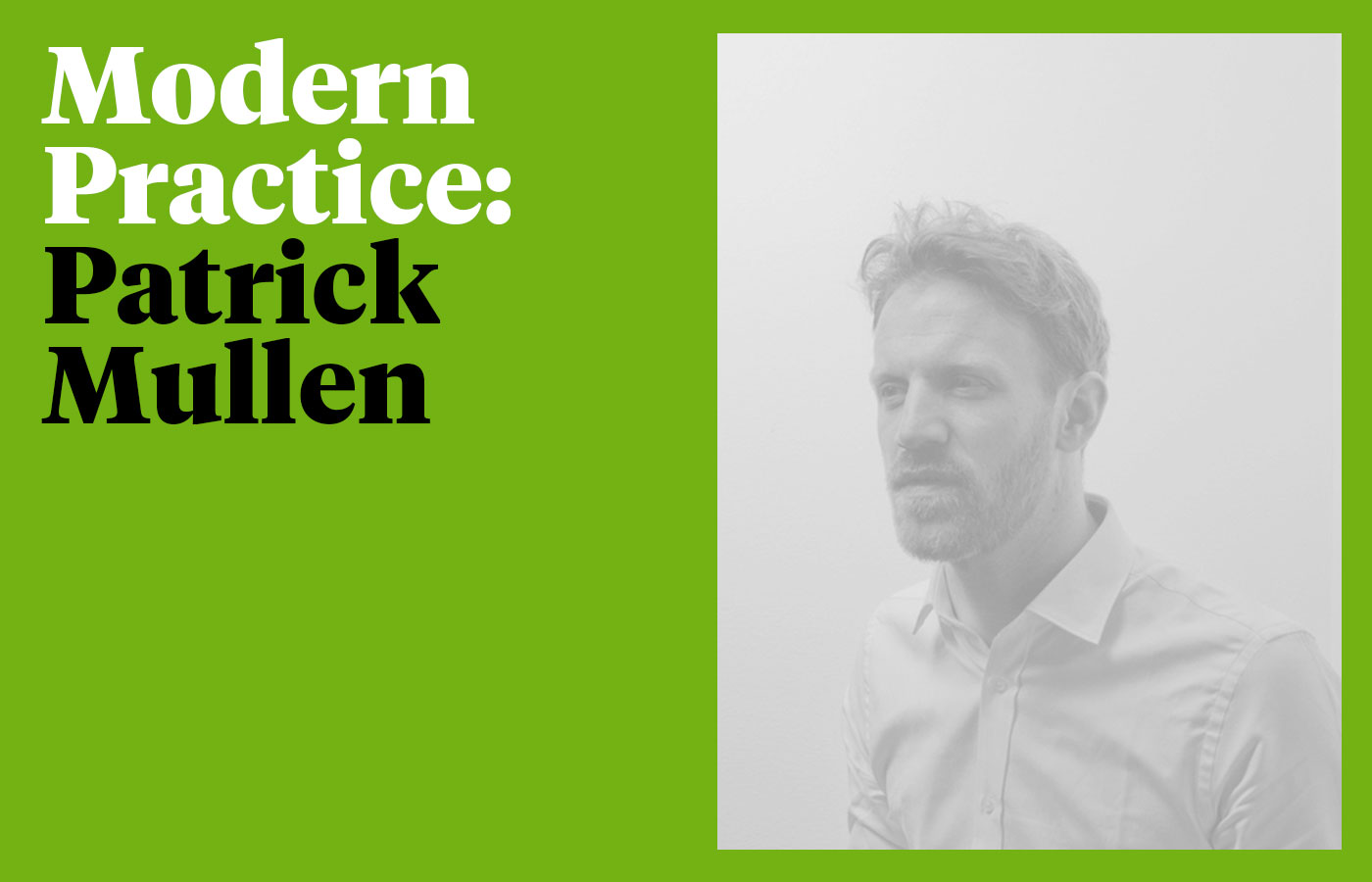What's your background? How did you get to where you are?
I studied Vis Comm in IADT and worked in Dublin for 6 wonderful years before moving to London almost 2 years ago, on a plane.
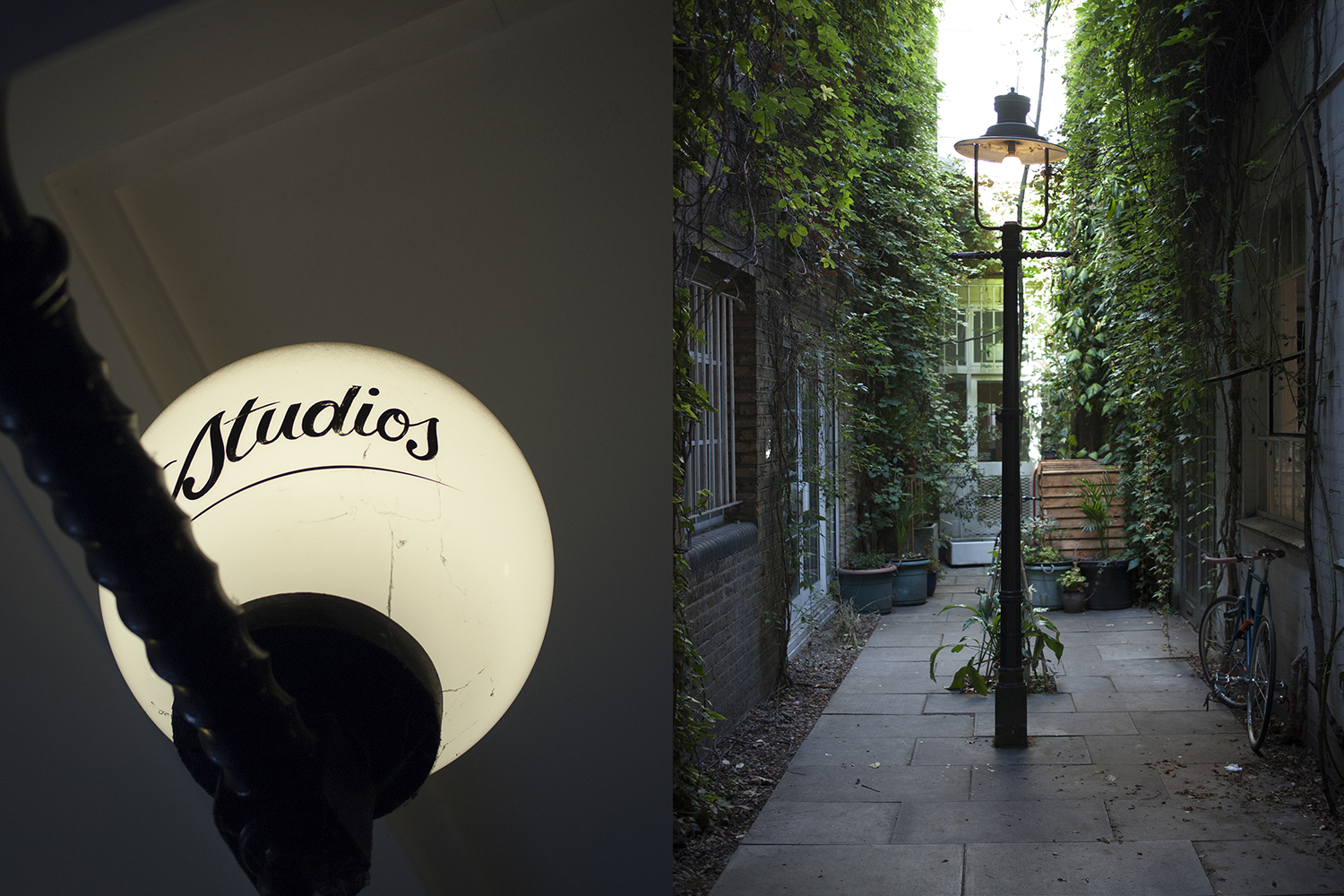
How would you define your role / practice right now?
I'm currently Lead Designer at Bureau for Visual Affairs, a digital design studio focussed on content-driven user experiences for the cultural and commercial sectors, and that's more or less exactly what we do.
Do you think that definition will change?
That's very hard to say—I can't see the company doing something so different the above description no longer fits but in the 2 years I've worked here I've seen our processes and the conversations we're having with clients shift quite dramatically. Simon (the Founder / Director) has a genuine interest in improving the websites and products we build and, as a team, we work very hard at being better at what we do, and that naturally means doing things different. We have also started to collaborate with other suppliers more in the past 12 months and we're learning to rely on their specialisms and insights and enjoying the cross pollination / information transfer that comes about. The outcomes that have resulted from these collaborations have been very exciting so I can see us doing more as time goes on, but never only like this, we're way too opinionated for that.
What do you set out to do with your work?
I like to make things work. If you view digital work as a service channel, rather than simply a tool for exposure or representation, you almost immediately arrive at the problems that need to be solved first in any brief, and far before you think about how the thing might look. Regardless of whether the client is a fashion label like Aquascutum or an artist like Marc Quinn, there are a number of requisite interactions or caveats that have to over-rule any of my ambitions as a visual designer. That, as an approach, really suits me — decisions are made based on an understanding of our client's audience and how they find relevance in information. I was always an analytical designer and never the sort that prospered in content creation. If I look back over the years I've worked, I realise I never felt too motivated about illustrating content or putting words in a client's mouth visually, and for that reason I worked more and more as a developer while I was still working in Dublin. I like things to be present and true rather than an exercise in self expression and so it's no surprise to me that I view my visual ambitions as irrelevant within the context of a client's needs. I think this approach is well suited to Bureau because we work with clients that create and produce a huge amount of content; our job is to help them add relevance to that content and to deliver it in a way that's engaging, aspirational or accessible to their users.
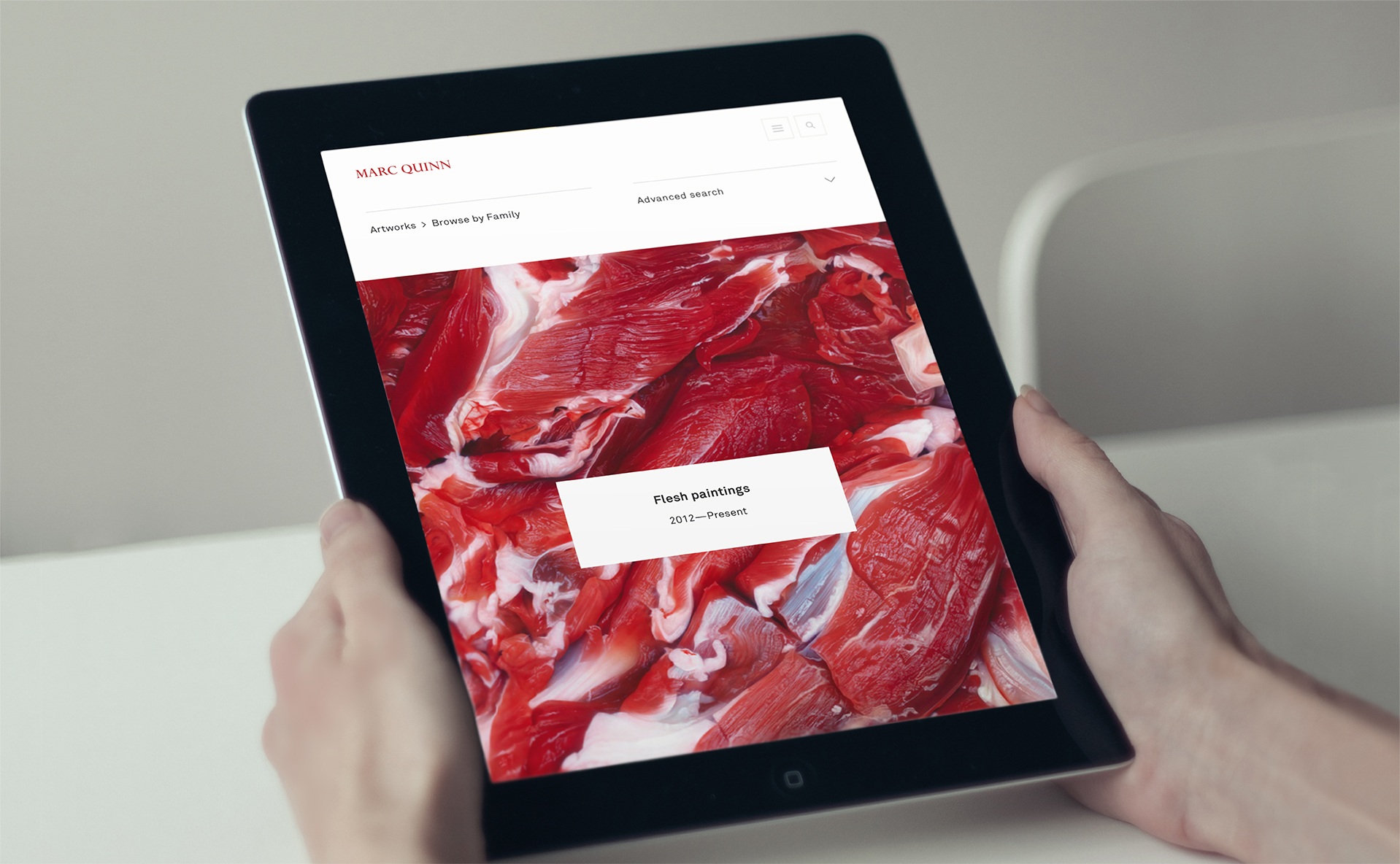
What's your motivation?
My motivation is just to create better sites. It's so easy to make something shit and it's just as easy to find someone who is happy to buy that too. Without being too cynical I feel like there can be a tendency to view development work or a 'CMS' as a commodity that can be sold off the back of a piece of design, rather than a separate stage that can add significant value if allowed. I'm exceptionally fortunate that I get to work with clients/organisations who rely on their users being happy with their digital services and their businesses are sometimes defined by what their site can enable a user to do. Clients/organisations like this inevitably have a real desire to drive their processes further and to seek technology led solutions to the problems design alone can't solve, but can better. Working with companies like that you produce better work by association but it's fair to say it motivates you too and the outcomes and successes you end up with personally are indebted to that collaboration.
What values do you try and instil in your work?
I think I have old fashioned (outdated?) values when it comes to design, I grew up colouring-in Architectural drawings as a kid and picked technical drawing, rather than the seemingly more popular choice of art, for my leaving cert so I was never destined to be wildly experimental visually. Add into the mix that I studied under, and later worked for, David Smith, so I would say I am certainly a typographically led designer. As for values: ensuring basic visual craft (for want of a better term) is important to me — visual coherence, logical grouping of elements and legibility are things I try and resolve in every job from the outset. Working with cultural organisations, with hugely varying content types, it is vital that the context of the content is apparent if the project is going to function, and visual coherence and typographic control are essential in achieving this. In general, I don't aspire to make things look 'trendy' and I'm not too interested in design for design's sake, clients invest in the products I design and build for them so I deliberately try and stay away from styles that will age fast or are irrelevant to their business, no matter how appealing I find them.
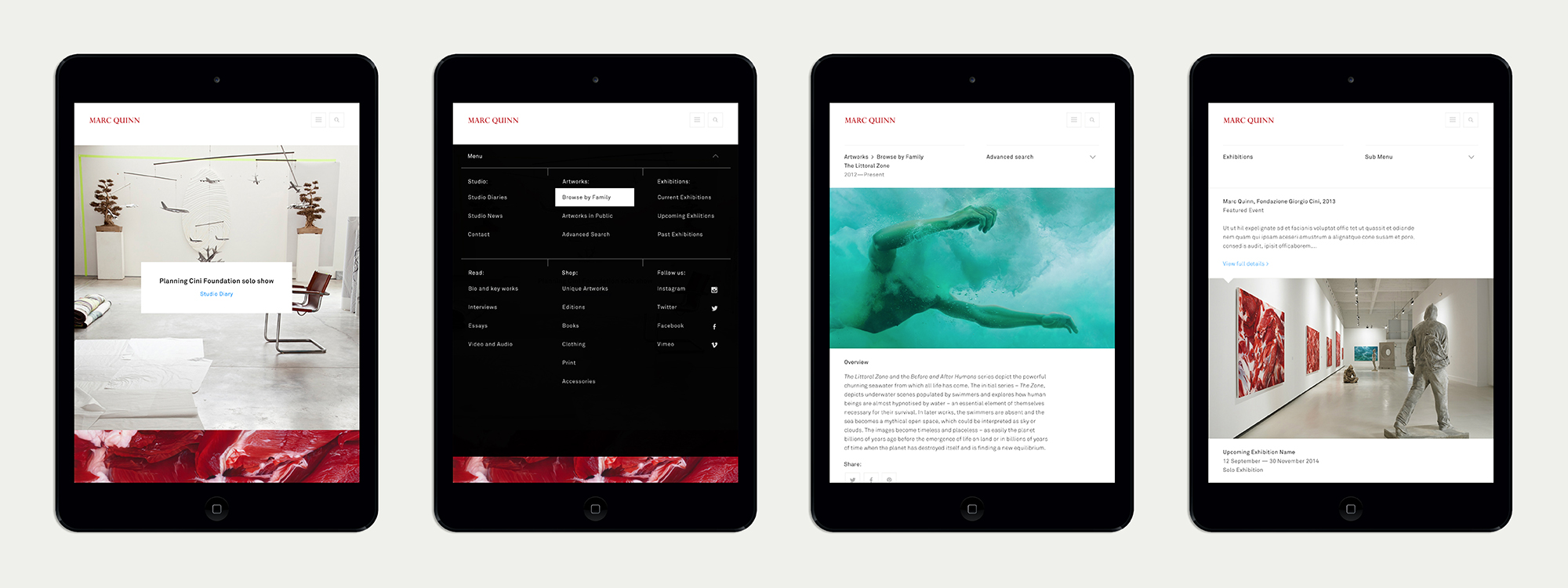
Outside of that I also try to design in a modular way, it maximises efficiency in production and also helps to maintain coherence for the life of the site, long after it leaves my screen and is maintained by other people. Besides the static layout, I work hard on making interactions clear and obvious too, I have no time for designers ignoring/overlooking interaction prompts, just so type or navigation looks neater/more uniform. This is a massive peeve of mine: for a designer to be working on anything interactive, to lack this basic level of empathy—so as to ignore by choice the reciprocal nature of the product you're designing, and the person it's intended for—is unforgivably self-centred and entirely against what, as designers, we aspire to do. So I think links and interactions should be loud and clear.
What is the main focus of your practice?
It's not my practice, I need to make that abundantly clear after I was misrepresented in an article in The Irish Times last year. Bureau's ambition is to continue to work with people, companies and organisations that we like and admire. For a company of 12 people we are very fortunate and pleased to be working with the organisations we do, we have a very personal relationship with them and I'd like to think our focus is to keep doing that. As a company, we love the internet—that sounds so lame but there you go, we also love standing in-front of a great ocean before a storm, the smell of freshly cut grass, and we also think bees that sting are mean #yolo. Sorry... but we do actually love the internet, we love what it can do for companies and their audience too, so we are always interested in finding people and clients that are keen to leverage, explore or promote this. It's a platitude to state this but companies and 'brands' are very much experiential now, they are defined by what they do for people and not just how they look—the internet is one of the best places to do this and that's why we love it.
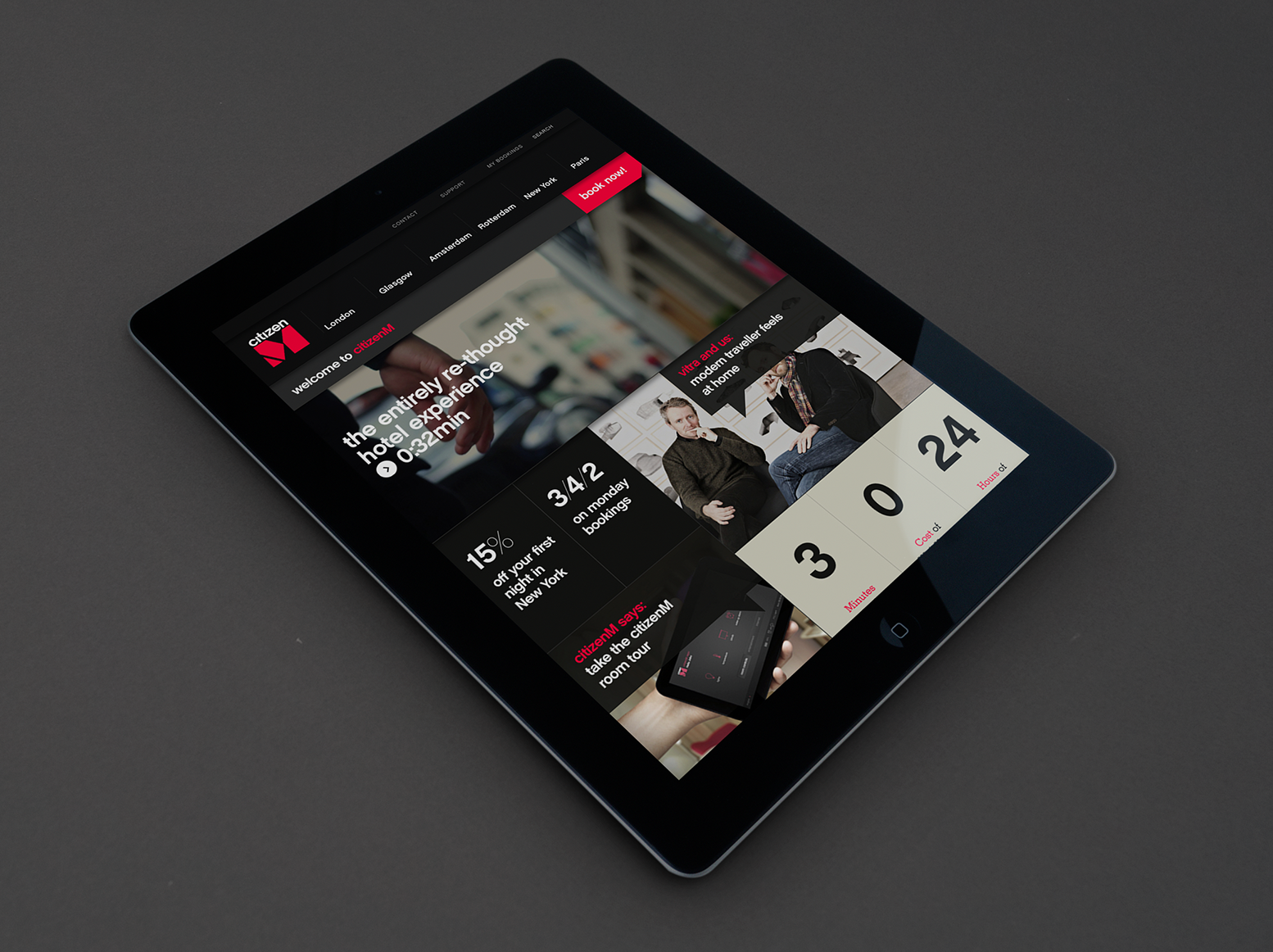
What are the areas you work in?
Very mixed, Private, Cultural, Commercial, Educational and Governmental too. We work with Cultural Organisations and Institutions primarily but also with a growing number of Fashion clients, Artists, City Councils and occasionally with Technology companies. We explicitly seek to work with both the cultural and the commercial sector and want to continue to do so—the lessons learned from one are pertinent to the other, especially as re-organised funding has left the cultural organisations we work with a little more focused on commercial aims.
What is the scale of your projects?
This varies hugely too. We have long timeframes on most jobs, almost always over 8 months. Last summer we started working with The National Theatre and The Southbank Centre and these projects are still ongoing, likely to launch before the end of the year (2015). Other jobs come in and out a little quicker, for example we started a redesign for Aquascutum in November of last year and this went live last month. I've been working on a redesign and entirely new browsing/searching structure for Marc Quinn and this has been running for over a year and will hopefully be live this month (July, 2015). A substantial database restructuring and internal 'management tool' has also been an ongoing project with CASS Sculpture Foundation for about 8 months now, as well as a site redesign for designer Sophie Hulme that will launch before the end of the year, so it really depends.
How many projects do you undertake a year?
Woah, good question. It depends on the turnover of the jobs really. A rough estimate: about 8—10 a year for the studio. I currently have 5 projects on my desk but I'm working in varying capacities on these; some I would be working on daily, others every two weeks, others merely overseeing. Out of these 5, I've been working on one for about 18 months, another one for about 14 months, one for about 8 months, one since the beginning of the year approximately and another for about 3 months now. But last year was different, and next year will be, too.
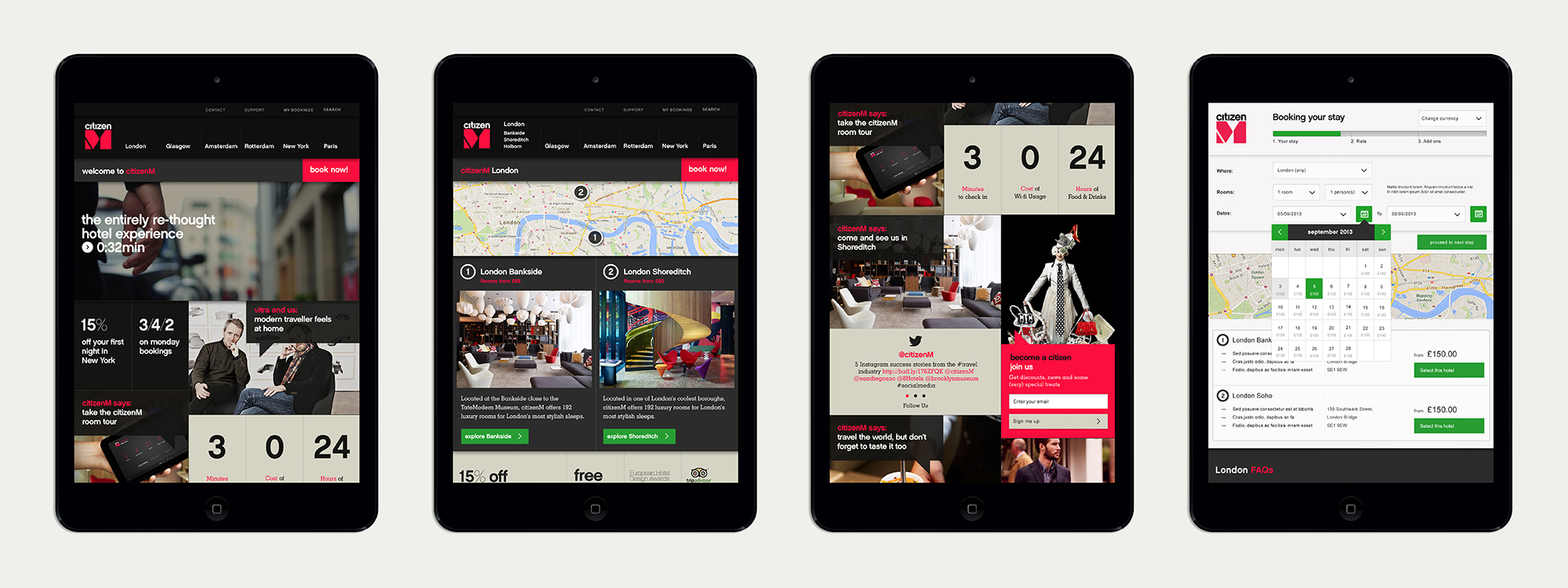
Can you give an indication of the budgets you work with?
Nope. Sorry! Very, very varied though which is inevitable given the disparate lead times and level of involvement we have in the job.
Can you give us a sense of what your working week would be like?
Myself and Simon are the project leads on almost every job, so our weeks are often split between client meetings, design, proposals, internal meetings with the rest of the design team and linking up with the developers, too. This varies from week to week but it's fair to say those aspects are constant with a bias towards one depending on the week. The studio is a nice place to be and we have a very good work/life balance, late nights are viewed as an indication of your own mismanagement of time so this keeps you focused during the day—you know what needs to be done so you don't piss around.
What type of outputs/outcomes do you deliver?
Another variable answer here, sorry... anything from written 'Design Principals' to 'UX' wireframes; from research projects to finished e-commerce sites. More often than not it's design templates ready for the developers to build. Strangely, we do 'roll-out' on most projects whereby every layout type/template/module is designed to 3 breakpoints and signed off by the client. It gets very time consuming when working with e-commerce designs because of all the necessary variants in messaging and basket states etc. but despite the extra effort, the time spent refining / considering every element of a site and how it can be re-used results in a far more consistent build—type styles are refined to their irreducible core and layout decisions are being made based on the entire site, and the relationship it has with itself.
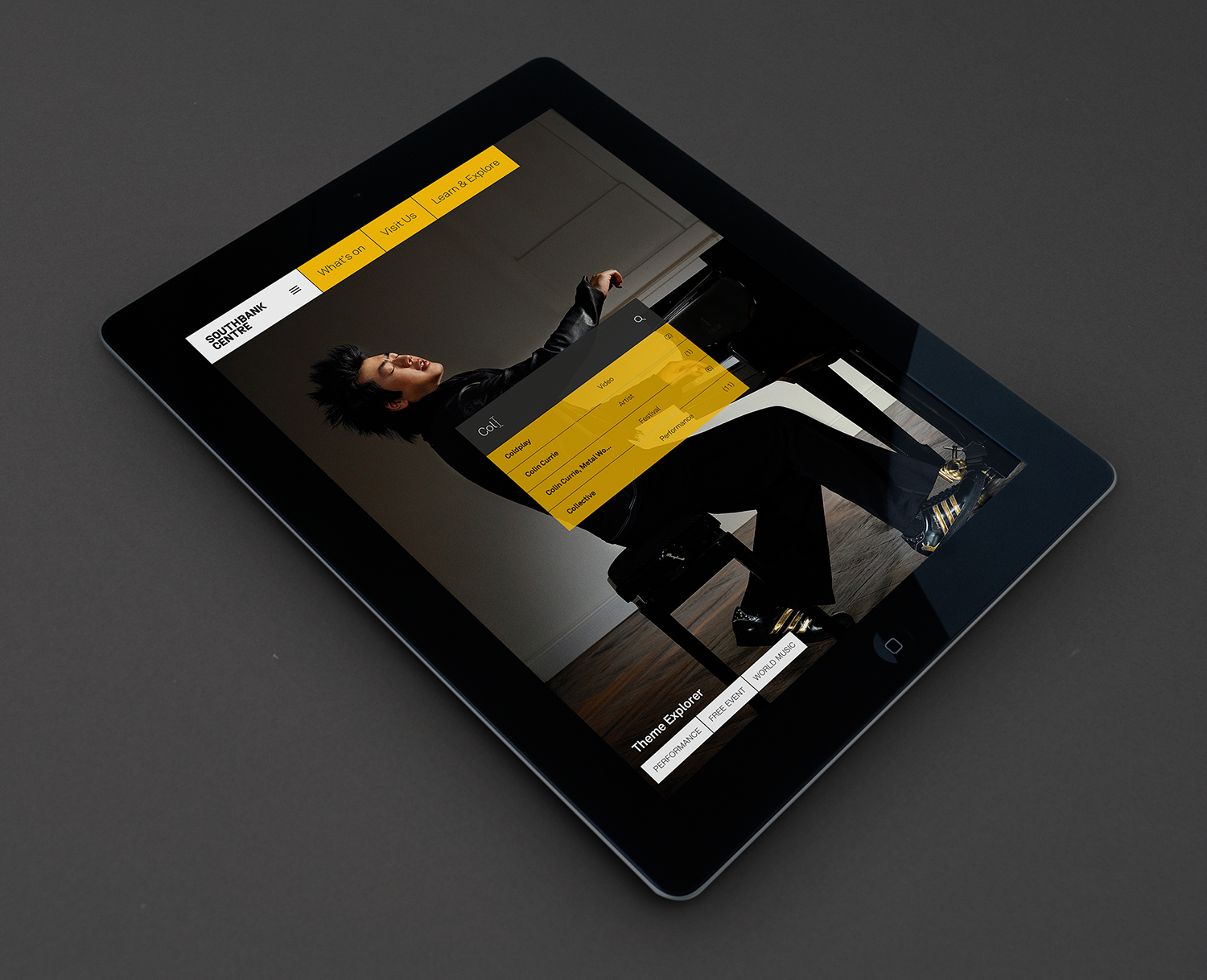
Do the people you work with understand what you do / understand the value?
Definitely, but I can't see Simon agreeing to work with a client who didn't. To work with a client who doesn't understand your value is the equivalent to them going to Osteria Francescana and asking Mr. Bottura to 'just stick a Goodfellas pizza in the oven'. I'm not for a second comparing myself to Massimo—and I understand that is a horrendously pompous analogy—but I know we wouldn't agree to work with a client who didn't or couldn't understand the value we could add.
What do you consider a successful project to be?
One that makes the 100Archive is genuinely a great feeling. As an Irish designer working abroad I still feel a huge sense of pride when my work is well regarded at home, and it's one of the nicest things about the Irish Design Community; the perpetual inclusion and interest that remains long after you move abroad. Away from home, I've found when working with large cultural organisations it's pretty likely you're going to reveal disparate ambitions from the key stakeholders during the requirements gathering/scoping stages of a project. More often than not these ambitions are going to be self/departmentally serving and it's a real challenge to try and steer things in a user-focused way. If you can manage it, that is pretty much straight away a successful project once it's realised. For our commercial clients we have metrics that in no uncertain terms tell us whether or not it's a success, but that doesn't feel quite as good as the first or second ones above.
What do you feel is the impact of what you do?
I like to think that day-in, day-out we work hard to make the internet a better, safer place... In honesty though, I'm not sure. I hope I produce things that people want to use, that people want to interact with and can do so without being frustrated or confused by it. With some jobs I almost hope the design doesn't get noticed, that it just works as a service. For others though I do hope they notice it. I hope they notice it a lot. I hope they notice it so much they feel fizzy with excitement, they feel like their little stomachs are filling with a hot little excited, sexy mist and that if they try to speak they'll squeal like a pinched balloon. They stand up, hands clenched and in-front of their mouths... they feel like this digital adventure is too much, and their heads might... just... POP! But they don't, they control it. They breathe and then, they decide to buy something new to wear on www.aquascutum.com, or www.whistles.com, or www.dondup.it using Promocode: 100ARCHIVE*
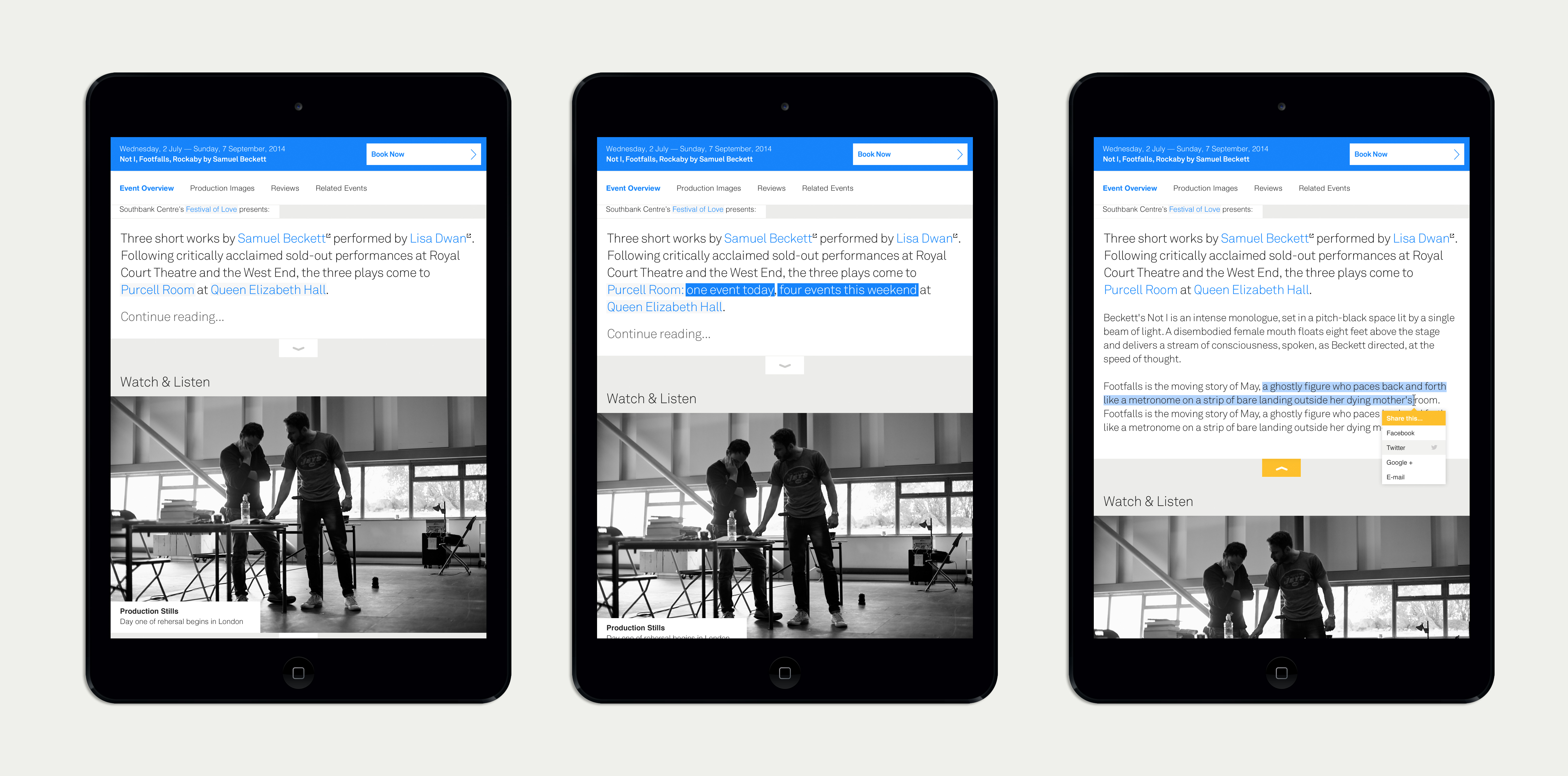
What's the most important thing to get right in order to do your job properly?
I think without a balanced professional relationship it's very difficult to deliver a good project. Trust, respect and confidence are hard won and rarely offered up at the start of a new business pairing, so the scoping and discover phases are very important in any job. Transparency is important too, I don't think the design process needs to be mystified or garnished, what we all do is considerably more impressive than we often appreciate and I think it's important a client understands the processes we go through and is given some responsibility in shaping their outcome, too.
Are you working the way you want to? What would you change?
Yep, I'm pretty damn happy with the work we do and who we get to do it with.
*(that promo code doesn't work)
